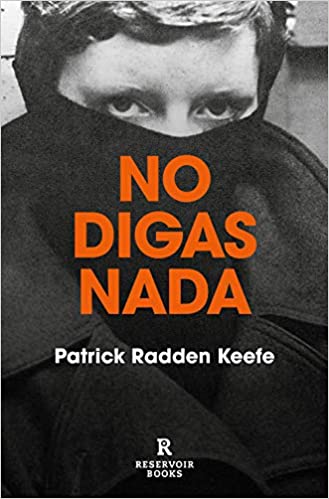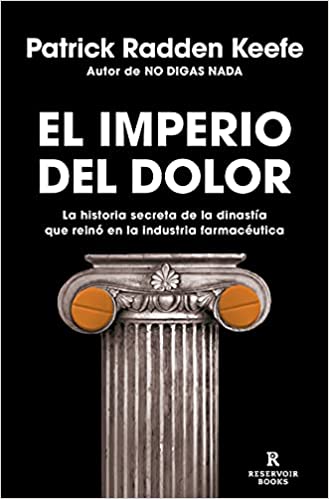Today, Patrick Radden Keef It is one of the great references in the research literature. And precisely from those always interesting books on various aspects of our world, good old Patrick also ended up getting to frize the fictional narrative with that vitola of a writer in charge of unraveling aspects of reality that are always disturbing, composing the necessary story with which what may pass as anecdotal ends up unraveling as substantial.
It is always enriching to dwell on these types of authors whose narrative horizon is completely drawn from real circumstances. Authentic chroniclers who are entrusted with buried matters as charges towards the truth. Patrick's journalistic prestige brings him closer to knowledge of the facts that he ends up spreading with that commitment of a journalism nowadays that is questioned by other issues around the need for visits in its digital aspect so as not to lose the immediacy of the news versus social media, for example.
This is how we better understand the love of today's established journalist for the book as a work par excellence, where he can recover brilliance for his profession. Patrick Radden Keefe achieves this with each new volume that arrives in Spanish, we delve into authentic reports adorned with prose that equates literature and truth.
Top Recommended Books by Patrick Radden Keefe
Do not say anything
Beyond the war in the Balkans, other conflicts of a nationalist nature plagued Europe until the last decades. In the midst of democratic societies and already at peace, terrorism hits more if possible and books and novels are written about it. Aramburu He did it recently with Patria regarding ETA while Patrick Radden Keefe did the same with this revealing work.
In December 1972, several hooded men kidnapped Jean McConville, a thirty-eight-year-old widow with ten dependent children. No one doubted, in that Catholic quarter of Belfast, that it was a retaliation from the IRA. However, the crime did not begin to be solved until 2003, five years after the Good Friday peace accords, when McConville's mortal remains were unearthed on a lonely beach.
When Patrick Radden Keefe set out to investigate the ramifications of this case, he was unaware that he would end up writing a full account of the Northern Irish conflict that has received unanimous acclaim. Interviewing with dozens of testimonies, many of which had never before given their version, he portrays the professionalization of the Republican militias, the repression of the British State, the escalation of violence and, above all, the ideological evolution of some of its protagonists. For example, that of Dolours Price, who joined the IRA at an early age and was involved, among other attacks, in the execution of Jean McConville.
Framed in the best tradition of narrative journalism and literary non-fiction, Do not say anything it is a book that combines history, politics and biography, and that probes the moral dimensions of a conflict that, half a century later, still raises blisters.
The empire of pain
They look after our health through chemistry capable of restoring balance or replenishing physiologies. Pharmaceutical companies always leave the shadow of suspicion. The Sackler case looms over the present day with the doubt as to whether we could be in similar cases today...
The Sackler name adorns the walls of the most distinguished institutions: Harvard, the Metropolitan, Oxford, the Louvre. It is one of the richest families in the world, benefactor of the arts and sciences. The origin of their heritage was always dubious, until it came to light that they had multiplied it thanks to OxyContin, a powerful pain reliever that catalyzed the opioid crisis in the United States.
The empire of pain begins in the Great Depression, with the history of three brothers dedicated to medicine: Raymond, Mortimer and the indefatigable Arthur Sackler, gifted with a special vision for advertising and marketing. Years later, he contributed to the first family fortune by devising the business strategy of Valium, a revolutionary tranquilizer, for a large pharmaceutical company.
After a few decades, it was Richard Sackler, Raymond's son, who went on to run the clan's businesses, including Purdue Pharma, his own drug-making company. Building on his uncle Arthur's aggressive tactics to sell Valium, he launched a drug that was to be definitive: OxyContin. They made billions of dollars from it, but it would end up ruining their reputation.
Since 2017, Patrick Radden Keefe has investigated the secrets of the Sackler dynasty: the complicated family relationships, the money flows, their dubious corporate practices. The result is a journalistic bomb that recounts the rise and fall of one of the great American families and its dark emporium of health.


